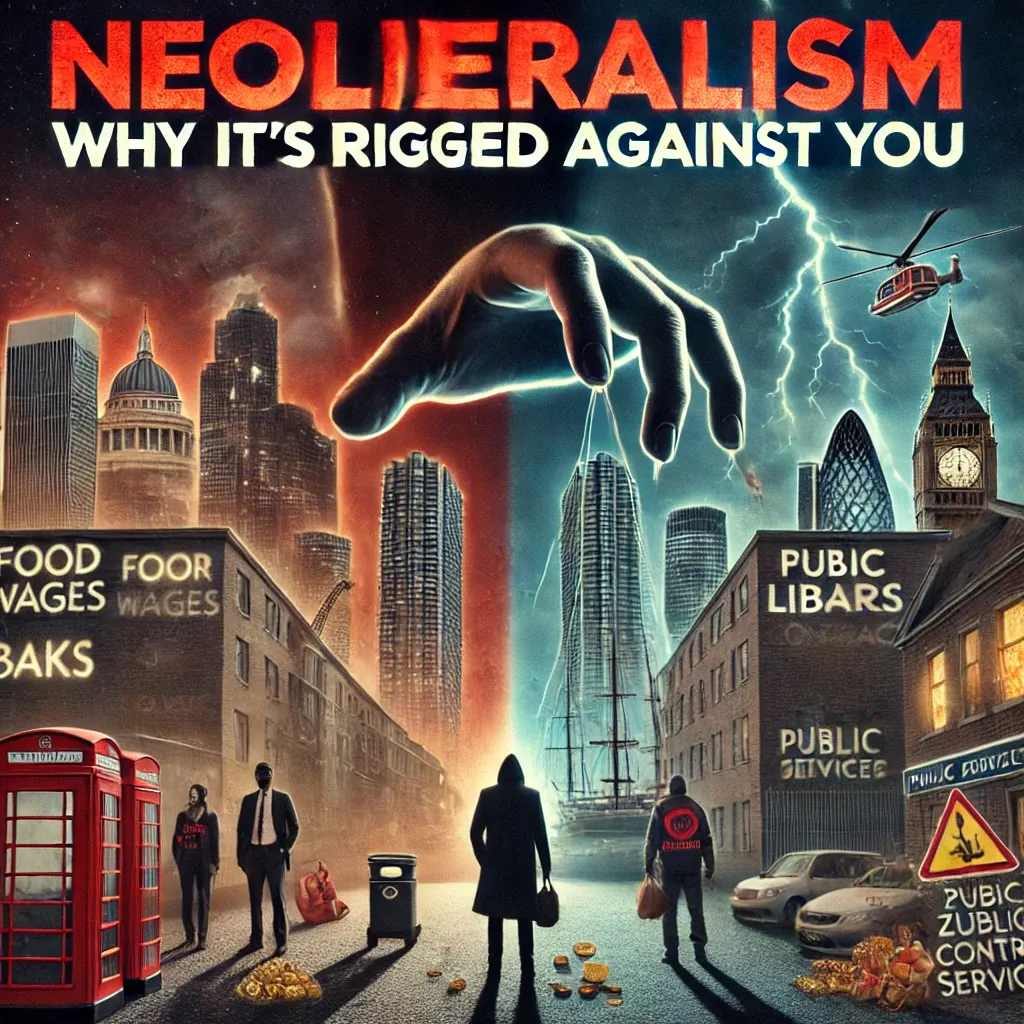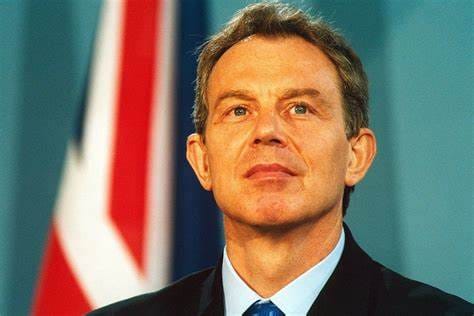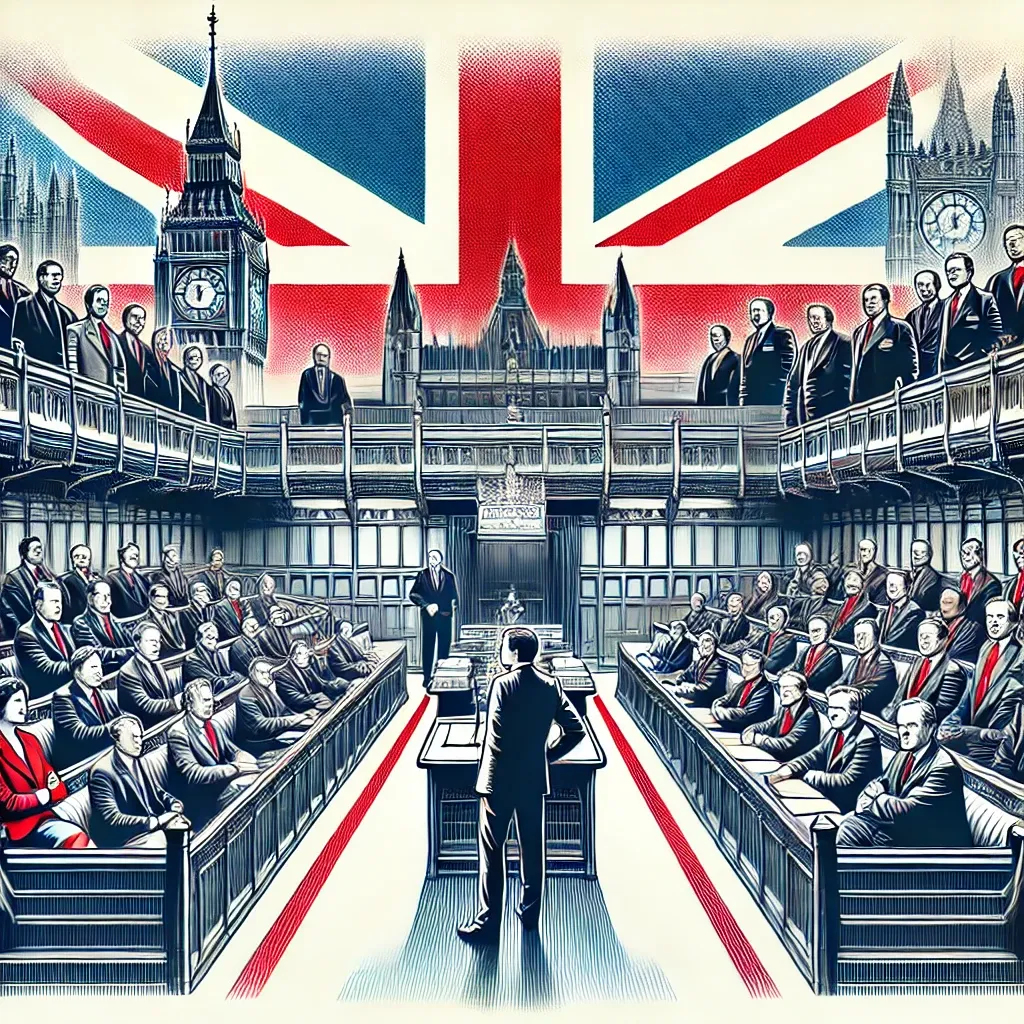Why Neoliberalism affects YOU!
Neoliberalism rigs the system: billionaires get richer, you get poorer. From Thatcher to Starmer, wealth inequality soars. Fight back, or the far-right will fill the void. Your future depends on it.

Neoliberalism isn’t just an abstract economic theory—it’s a system that shapes your life every single day. It’s why wages have stagnated while the cost of living soars. It’s why public services are crumbling while billionaires amass obscene wealth. It’s why you have fewer rights at work and fewer options at the ballot box. From Thatcher’s deregulation to Blair’s privatisation and the Tories’ COVID-era handouts to the rich, neoliberalism has entrenched inequality and disempowered the working class. This article explores how neoliberalism affects YOU today, why it’s not inevitable, and what we can do to fight back.
What Is Neoliberalism?
Neoliberalism is an economic and political ideology that prioritises free markets, deregulation, privatisation, and the reduction of state intervention. It emerged in the 1970s as a response to the post-war consensus of Keynesian economics and social democracy. Thinkers like Friedrich Hayek and Milton Friedman argued that markets, not governments, should dictate economic and social outcomes. As David Harvey explains, neoliberalism is “a theory of political economic practices that proposes human well-being can best be advanced by liberating individual entrepreneurial freedoms within an institutional framework characterised by strong private property rights, free markets, and free trade” (Harvey, 2005).
But neoliberalism is not just about economics—it’s also a political project. As Loïc Wacquant argues, neoliberalism is a “new mode of governance” that uses state power to enforce market logic, often at the expense of social welfare and collective solidarity (Wacquant, 2010). This ideology has reshaped the political landscape, leaving little room for alternatives to the free market.
Watch JimmyTheGiant go in depth about The Iron Lady
Thatcher and the Birth of Neoliberalism in the UK
Margaret Thatcher was neoliberalism’s most fervent advocate in the UK. Elected in 1979, she set about dismantling the post-war consensus, privatising state-owned industries, crushing trade unions, and deregulating the financial sector. Her mantra, “There is no alternative” (TINA), became the rallying cry for neoliberalism, presenting free-market capitalism as the only viable economic system.
Thatcher’s Neoliberal Reforms:
- Privatisation: Thatcher sold off state-owned industries like British Telecom, British Gas, and British Airways, transferring public assets into private hands. By 1990, over 50 state-owned companies had been privatised, raising £29 billion for the Treasury (Cahill, 2011).
- Union Busting: The 1984–85 miners’ strike was a defining moment in Thatcher’s war on organised labour. Her government introduced laws restricting strikes and closed shops, weakening unions and reducing workers’ bargaining power.
- Deregulation: Thatcher’s “Big Bang” in 1986 deregulated the financial sector, turning the City of London into a global hub for finance capital. This laid the groundwork for the financialisation of the economy, where profits are increasingly derived from financial speculation rather than productive investment.
Impact on Inequality:
Thatcher’s policies led to a dramatic increase in wealth inequality. Between 1979 and 1990, the share of income going to the top 1% rose from 6% to 13%, while the bottom 10% saw their incomes stagnate (Atkinson, 2015). By the end of her tenure, the UK had become one of the most unequal societies in the developed world.
Labour’s Shift to the Right: The Blair Years

Neoliberalism's ideological dominance had reshaped British politics so much that Labour had to move to the right under Tony Blair because traditional social democracy and welfare politics was "less sexy" to voters, mainly due to Thatcher's hegemoney (Hall, 1988), and an age of right wing media bias and 'think tank' rule.
Blair’s Third Way ideology sought to reconcile neoliberalism with social democracy, but in practice, it deepened the neoliberal project.
- Privatisation by Stealth: Blair continued Thatcher’s privatisation agenda, introducing Private Finance Initiatives (PFIs) to fund public infrastructure. These deals left the NHS and schools saddled with long-term debt, while private companies reaped the profits (Whitfield, 2001).
- Deregulation of Finance: Blair’s government maintained Thatcher’s deregulated financial sector, culminating in the 2008 financial crisis. As R. Connell argues, “New Labour’s embrace of neoliberalism ensured that the City of London remained a playground for the wealthy, while ordinary people paid the price” (Connell, 2010).
- Erosion of Workers’ Rights: While Blair introduced the National Minimum Wage, his government also promoted flexible labour markets, leading to the rise of zero-hour contracts and precarious work.
The impact of Oligarchy in the City of London

The City of London is the beating heart of neoliberalism in the UK. As a global financial hub, it has become a playground for the ultra-wealthy, with its deregulated markets enabling tax avoidance, speculation, and corporate greed. The City’s influence over government policy has created what Cahill calls a “corporate oligarchy,” where wealth and power are concentrated in the hands of a few (Cahill, 2011).
- Since 1990, the number of billionaires in the UK has risen from 2 to over 150 (Forbes, 2023).
- Meanwhile, 4.3 million children (30% of all children) live in poverty, the highest level since records began (Child Poverty Action Group, 2023).
- The top 10% of households own 45% of the UK’s wealth, while the bottom 50% own just 9% (Office for National Statistics, 2023).
Keir Starmer and the Limits of Change
Keir Starmer’s Labour Party represents a break from the overt neoliberalism of the Blair years, but it is unlikely to fully challenge the neoliberal consensus that has dominated British politics for decades. While Starmer has pledged to address inequality and rebuild public services, these structural and ideological barriers to meaningful change are immense:
- The Power of the Wealthy Elite: After decades of neoliberalism, the idea that markets know best has become deeply embedded in society. The UK’s billionaire class and corporate interests wield enormous influence over politics and policy. As Gary Stevenson, the former Citibank trader turned inequality campaigner, has pointed out, the wealthy often hold the nation to ransom, threatening to leave or withdraw investment if faced with higher taxes or stricter regulations (Stevenson, 2023). This creates a chilling effect on progressive policies, as even well-intentioned governments fear economic backlash.
- Right-Wing Media: The UK’s media landscape is dominated by right-wing outlets that consistently frame progressive policies as “radical” or “unaffordable.” Any attempt to address wealth inequality through higher taxes on the rich or increased public spending is likely to be met with fierce opposition from newspapers like The Sun and The Daily Mail, which have a long history of defending the status quo.
- The Labour Right: Within the Labour Party itself, there is a significant faction that remains wedded to neoliberal ideas. These figures often argue that Labour must appeal to “middle England” by adopting fiscally conservative policies and avoiding anything that could be labelled as “anti-business.” This internal pressure makes it difficult for Starmer to pursue bold, transformative policies.
Watch Gary Stevenson explain how Neoliberalism causes wealth inequality.
Conclusion: The Fight for a Fairer Future
Neoliberalism shapes your life: stagnant wages, crumbling services, and fewer rights. If Starmer’s government fails to tackle wealth inequality, it risks fueling the same disillusionment that has driven the rise of far-right rhetoric. As Loïc Wacquant warns, “When mainstream parties fail to deliver meaningful change, they create a vacuum that far-right populists are all too eager to fill” (Wacquant, 2010). The electorate may not understand neoliberalism’s nuances, but they know when they’re being left behind.
The good news is that neoliberalism is not inevitable. As Harvey reminds us, “There are always alternatives” (Harvey, 2005). The task for socialists is to build a movement that challenges the neoliberal consensus and fights for a fairer, more equal society. The stakes could not be higher—your future depends on it.

Reference
- Atkinson, A. (2015). Inequality: What Can Be Done? Cambridge: Harvard University Press.
- Cahill, D. (2011). The End of Laissez-Faire? On the Durability of Embedded Neoliberalism. Cheltenham: Edward Elgar Publishing.
- Child Poverty Action Group (2023). Child Poverty Statistics. Available at: CPAG.
- Connell, R. (2010). Neoliberalism and the Crisis of Social Democracy. Sydney: University of Sydney Press.
- Dorling, D. (2014). Inequality and the 1%. London: Verso Books.
- Forbes (2023). Billionaires List. Available at: Forbes.
- Harvey, D. (2005). A Brief History of Neoliberalism. Oxford: Oxford University Press.
- Office for National Statistics (2023). Wealth and Assets Survey. Available at: ONS.
- Stevenson, G. (2023). The Inequality Crisis: Why We Need to Tax the Rich. London: Verso Books.
- Wacquant, L. (2010). Punishing the Poor: The Neoliberal Government of Social Insecurity. Durham: Duke University Press.
- Whitfield, D. (2001). Public Services or Corporate Welfare: Rethinking the Nation State in the Global Economy. London: Pluto Press.
